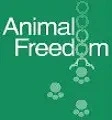A growing threat to public health
Diseases such as Foot and Mouth, BSE, Swine Fever, Fowl Pest (including the mutated H5N1 variety) have almost become accepted as part of daily life. These diseases lead each time to wide scale suffering in animals and unreasonable extermination of healthy animals. What's new is the threat to public health which seems to be caused by factory farming. During the spread of the Avian Flu pandemic, the threat of yet another disease has arisen: MRSA in pig farmers.
The time is ripe for extensive investigation into the health hazards which our factory farming seems to bring about. The related social "cost price" of animal products, has not yet been reflected in the price tags on the supermarket shelves!
MRSA in pig farming
The Dutch Centre for Infectious Disease Control (CICD) issued a warning recently to all doctors and hospitals, requesting attention for the fact that pig farmers AND their animals appear to be infected on a large scale with the dangerous resistant MRSA bacteria, also known as a variety of the much-feared "hospital bacteria". This bacteria, which is immune to many antibiotics, flourishes in an environment in which antibiotics are frequently used, such as hospitals, but also, as now appears in the pig sector.
The Dutch Risk Assessment Bureau of the Food and Commodities Authority (VWA) announced that research among pigs for slaughter showed that the hospital bacteria was present in 80% of pig-couples. The Bureau finds that pork meat now in shops should be tested for MRSA in order to better assess the risks of food poisoning. Earlier this year Prof. Schouten, director of this bureau, warned against increase in use of antibiotics among veterinaries in the meat sector and the resulting life-threatening pathogenic bacteria.
Zoonotic diseases
Other known diseases which are transferrable from animals to humans are salmonella, campylobacter and BSE. The rapid increase in livestock through the World and the equally growing trade in livestock and animal products leads to a heightened threat of animal diseases and diseases which can be transferred from animals to humans.
|

